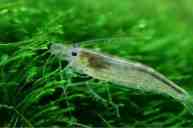The future of humanity may be in the stars, but our hopes of one day colonizing Mars may lay in this unassuming desert moss. It may be the secret key to establishing life on the barren planet.
According to Chinese scientists, the desert moss — Syntrichia caninervis — can withstand Mars-like conditions. It's found in hostile conditions such as Antarctica. It can also withstand high levels of radiation. The researchers want to see how the plants fare on a planet like Mars. Eventually, they would like to grow these plants naturally on the planets surface.
"The unique insights obtained in our study lay the foundation for outer space colonization using naturally selected plants adapted to extreme stress conditions," the team wrote via The Guardian. Meanwhile, Moss expert Stuart McDaniel, not involved in the study, suggests it could play an important role in long-term space travel.
"Cultivating terrestrial plants is an important part of any long-term space mission because plants efficiently turn carbon dioxide and water into oxygen and carbohydrates - essentially the air and food that humans need to survive. Desert moss is not edible, but it could provide other important services in space," he said.
Desert Moss To Space?
In particular, the desert moss could enrich the soil allowing other plants to grow, preferably tastier ones. So why this planet? Well, it's about survive almost complete dehydration. It also regenerates under normal conditions. Researchers replicated Mars conditions and found that it was able to survive in this environment. Additionally, it regenerated when placed under normal conditions.
"This paper is exciting because it shows that desert moss survives short exposures to some of the stresses that are likely to be found on a trip to Mars, including very high levels of radiation, very cold temperatures, and very low oxygen levels," McDaniel said."These experiments represent an important first step, but they do not show that the moss could be a significant source of oxygen under Martian conditions, nor do they show that the desert moss could reproduce and proliferate in the Martian context."




